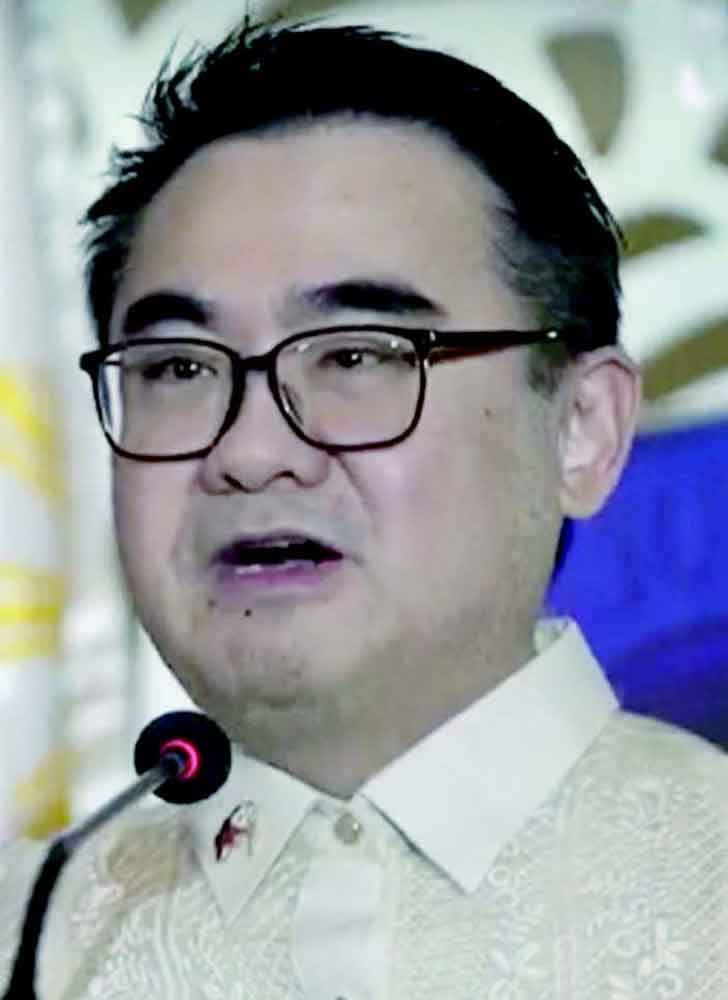The Office of the Special Assistant to the President for Investment and Economic Affairs (OSAPIEA) under Secretary Frederick Go is rolling out sweeping reforms meant to ease doing business, curb smuggling and sweeten incentives to attract investments, including equities.
In his first speaking engagement as head of OSAPIEA in Manila yesterday, Go identified five priority sectors that the Philippines needs to promote: mining particularly nickel and copper; semiconductors and micro electronics; agriculture; steel and pharmaceutical.
Go said his office is also taking major steps to resolve issues stemming from the Tax Reform for Acceleration and Inclusion Act and the Corporate Recovery and Tax Incentives for Enterprise (CREATE) Act, laws that generated serious concerns for foreign direct investors, particularly exporters.
“We are working with Congress to bring about certainty in our laws, providing confidence to investors predictability. and firm implementation of policies that will affect their investments. We’re looking at ways to simplify the application of incentives for all future registrants,” he said.
Go listed three major issues that Congress needs to address.
One is for the restoration of the powers of investment promotion agencies (IPAs) like the Philippine Economic Zone Authority, the Board of Investments, among others , over their locators to enable them to protect companies from regulatory inconsistencies and ambiguities as well as excessive bureaucracy and red tape.
The second is on issues related to value-added tax (VAT).
“We hope to clarify and simplify the rules. We are working with Congress to address the ambiguity on the coverage of VAT- zero rating incentives, ensuring that the law is clearly worded to avoid further conflicting interpretations by the implementing agencies. This will streamline the process (and) required documents,” Go said.
For the third issue, Go said there is a need to clarify the transitory provisions in CREATE.
He said Congress should specifically state that the non-income tax based incentives, particularly VAT zero rating and duty exemption, are not subject to the sunset period and that registered business enterprises may enjoy them for as long as they are registered in good standing in an IPA.
Another reform that OSAPIEA has been working on pertains to addressing long-standing issues on customs administration to curb smuggling, reduce misdeclaration and prevent substandard goods.
Go said his office proposes the elimination of pre- border inspection and the digitalization of invoicing.
“We hope to institute a proper, efficient oversight of tradable goods coming into the country. This will signal our commitment to openness, efficiency and transparency, encouraging local and foreign investors alike in the Philippines,” he said.
Aside from recent reforms instituted in the capital markets, Go said his office hopes to introduce steps that will encourage participation in equities such as reducing friction losses like sales tax; harmonizing withholding tax and reducing brokers commissions. “We’re also working on same day, volume weighted average price trading. All of these are in line with global market practices,” he said.
Another priority project is a digital national ID that will simplify public and private transactions, eliminating the need to present other forms of identification, Go said.
“It also aims to purge corruptionof fraudulent transactions and misrepresentations and strengthen financial inclusion, as this national ID can now be used to distribute government assistance,” he said.
On mining, Go noted the need to shorten the processing time of exploration projects.
For semiconductors and micro electronics, he said, the country needs to focus on where it is good at: assembly, testing and packaging and grow the higher value product which is design and a prototype of wafer fabrication.
In agriculture, he cited establishment of post-harvest facilities and improving the logistical chain as crucial interventions.
“Another industry we believe is basic and necessary to grow is the steel industry,” Go said.
He said the development of more local pharmaceutical manufacturing industries can bring down the cost of medicine and health care.





